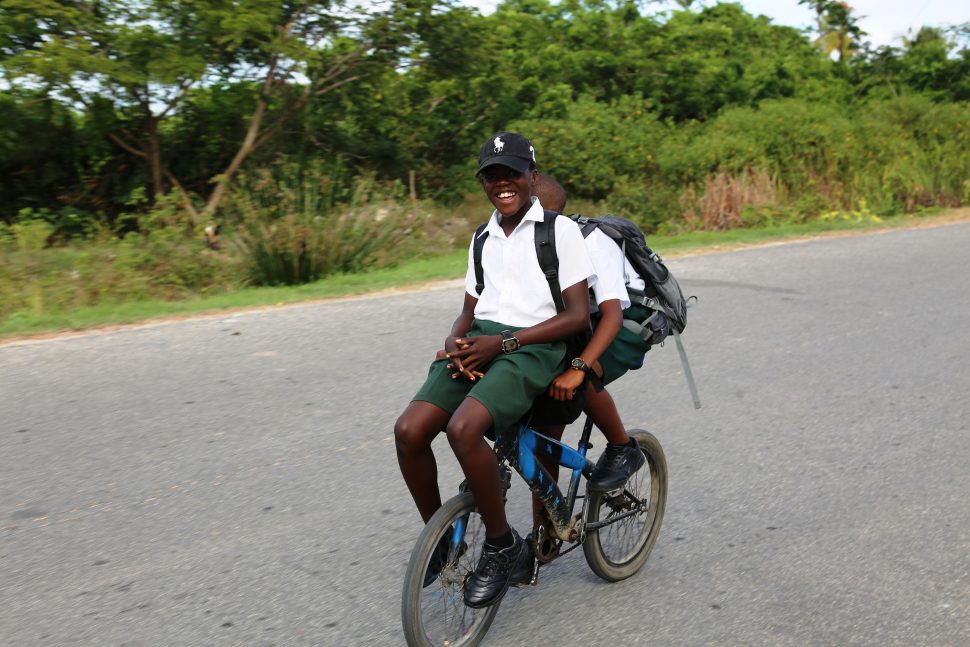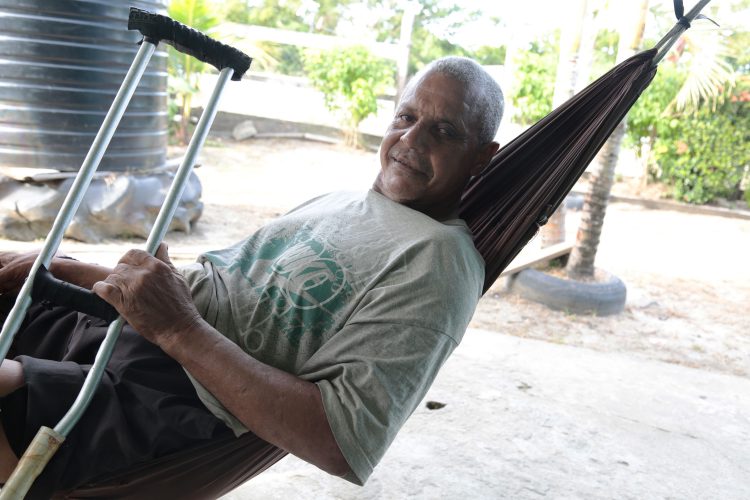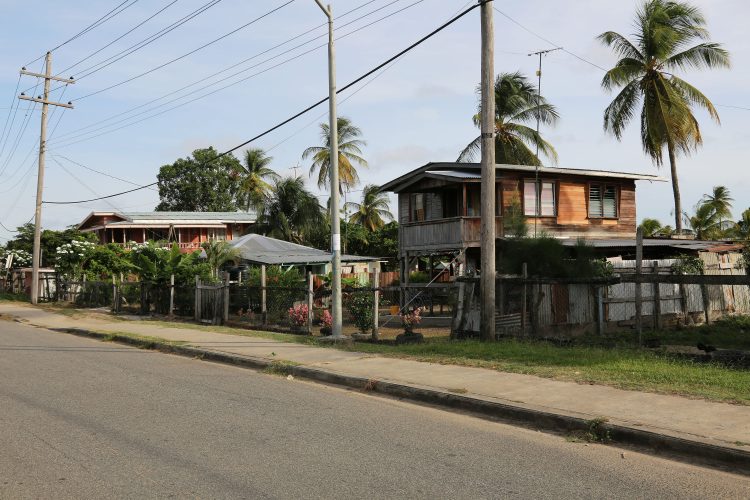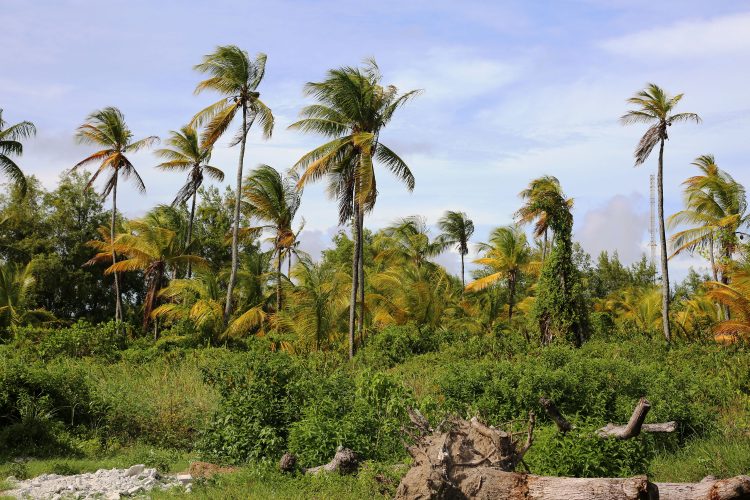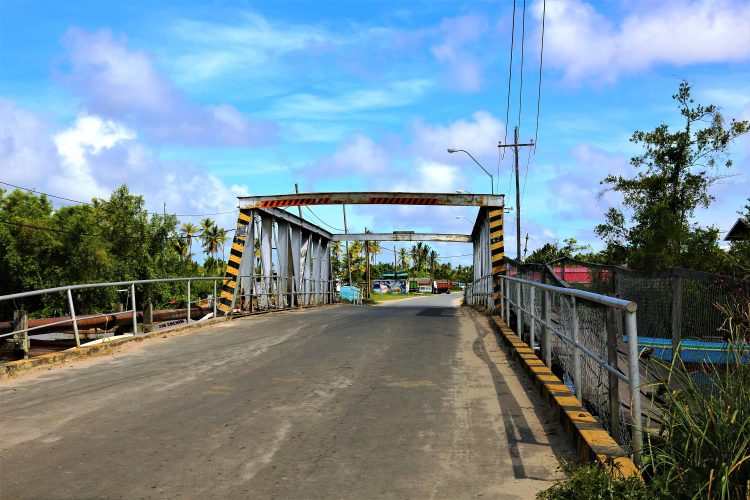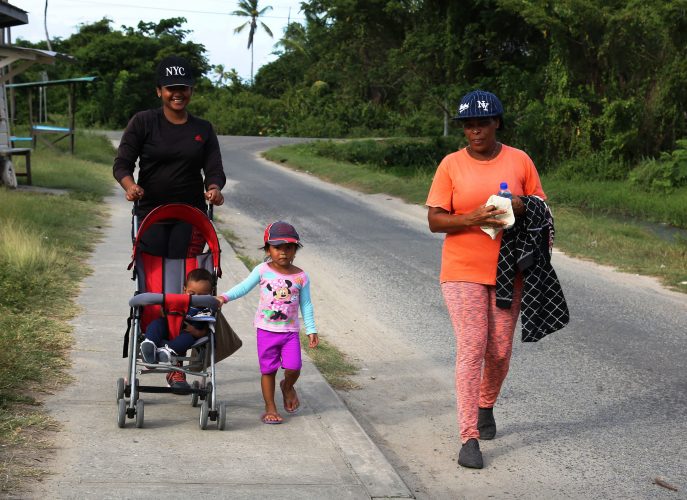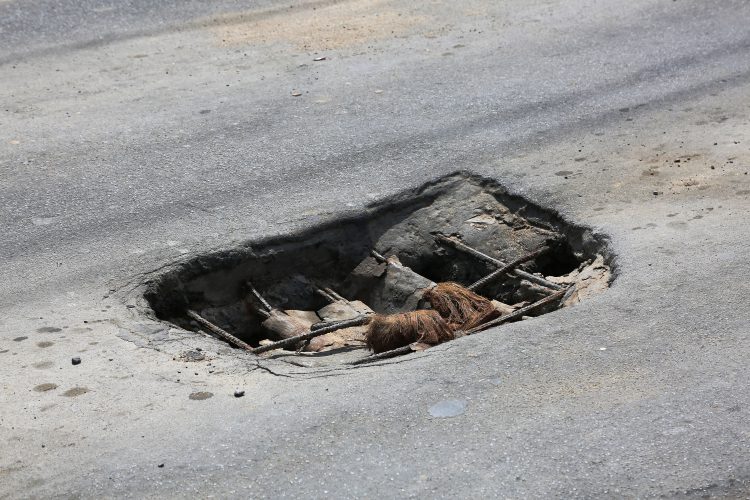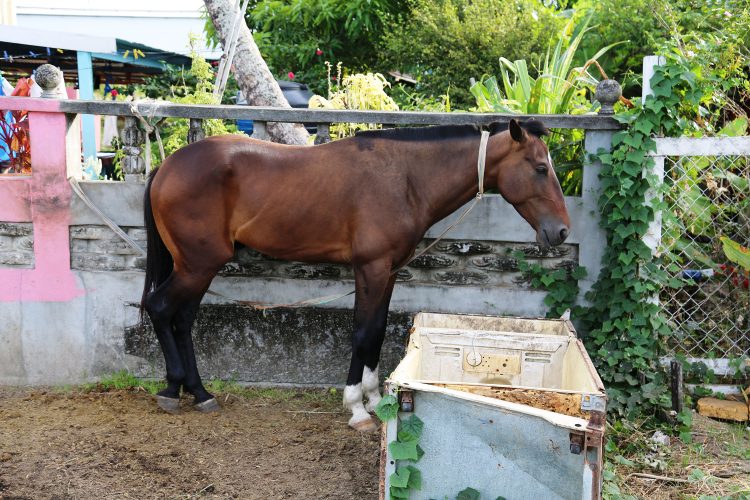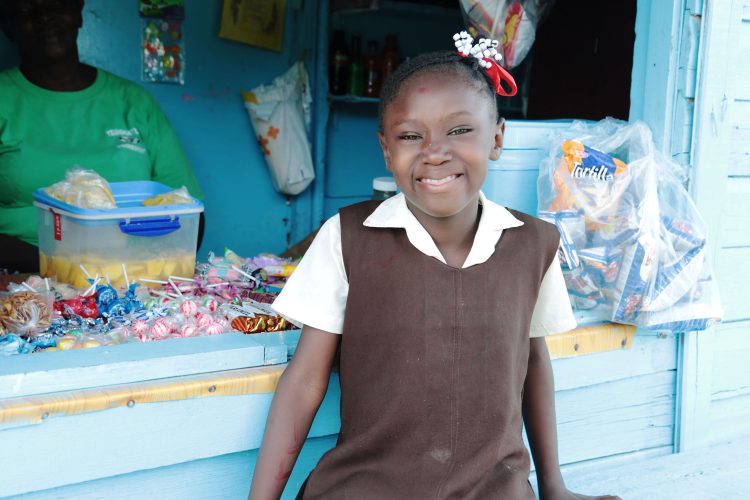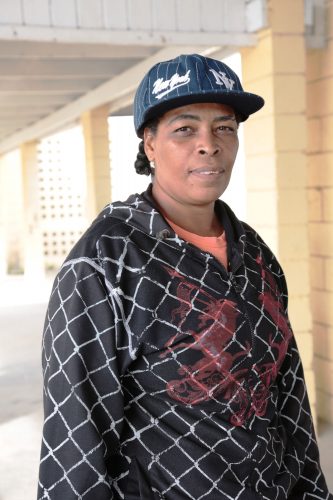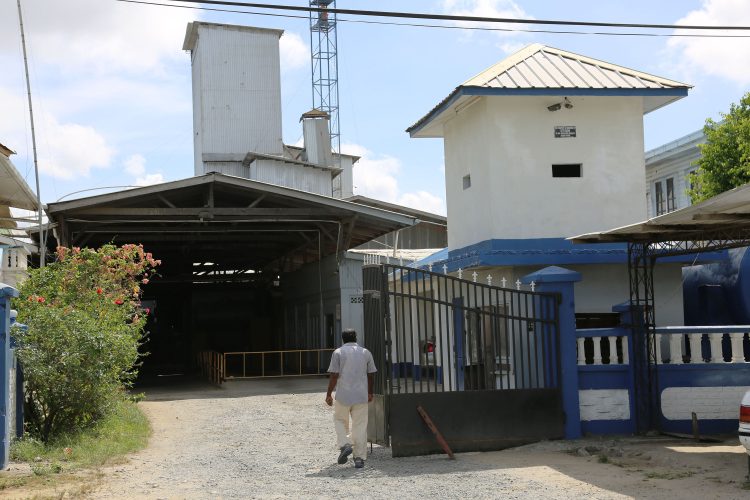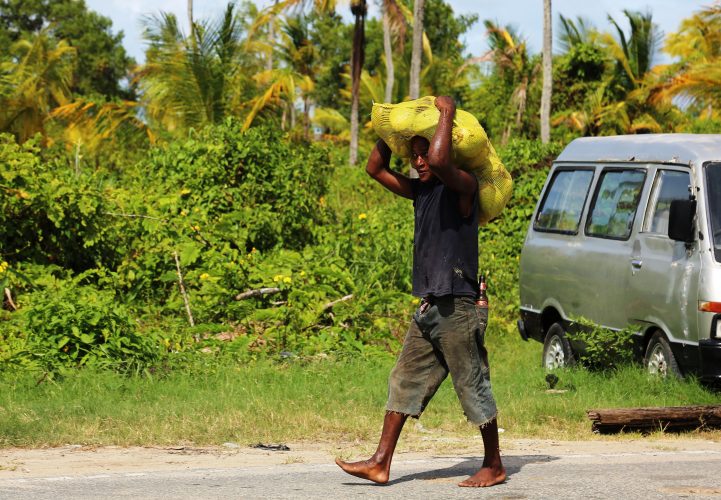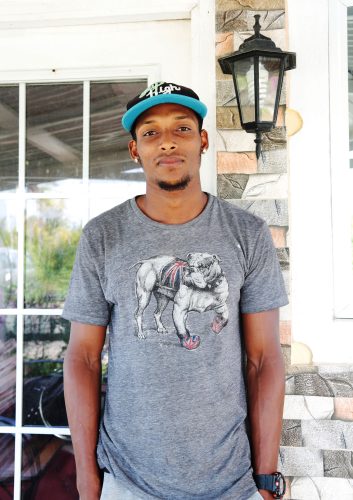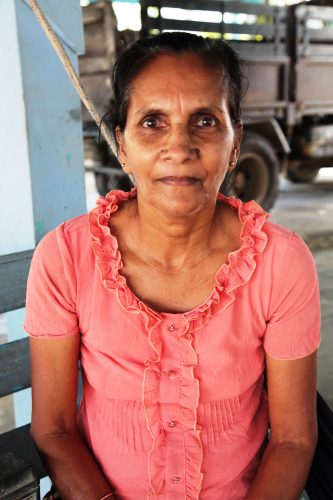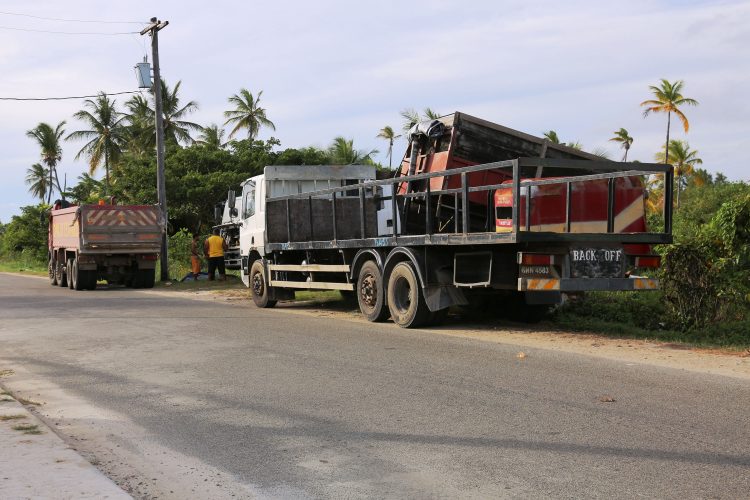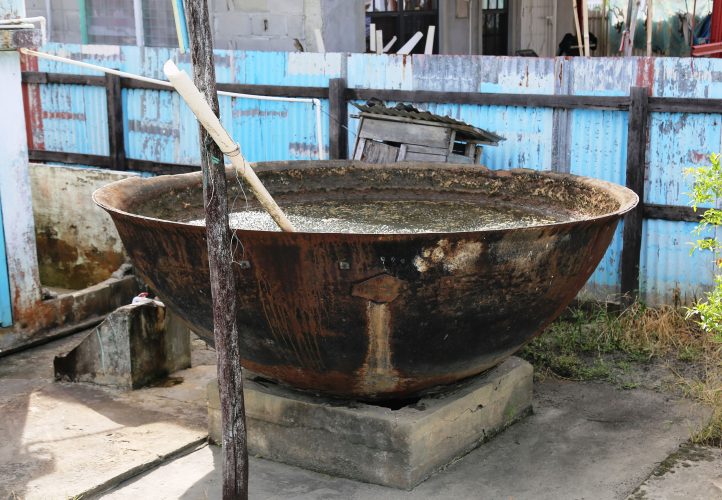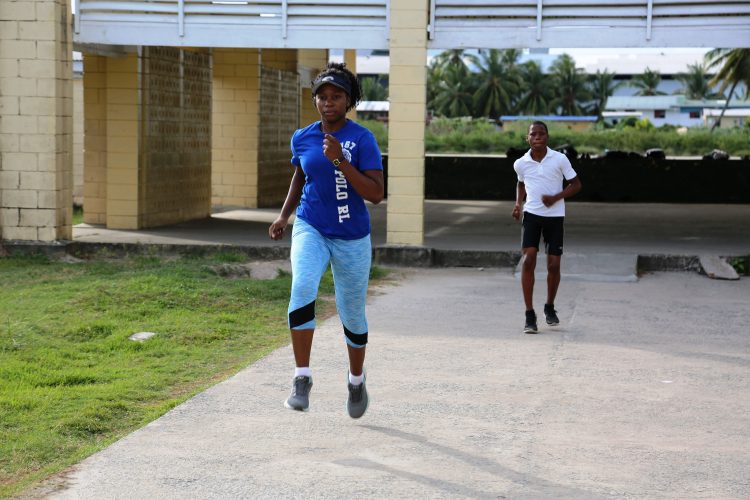Chelsea Park is a tiny village in Mahaica, so pictures-que that it has a park-like atmosphere and its villagers are health conscious, mannerly and friendly people.
The village, believed to be centuries old, has a charm about it that makes it stand out in Mahaica. Outsiders from the other villages around look on and say it is “different” and “nicer”, the two common terms used to describe it.
At one house where bougainvillea plants escaped the fence to decorate the front of a barber shop, I found Seon Budhan, a barber, who was born at Chelsea Park. He attended Helena Primary and Bygeval Secondary schools, the latter of which is situated in the village and was established in 1974, becoming an A-list school in 2013. Former president Bharrat Jagdeo attended Bygeval Secondary. Between the period 1974-2014 the school’s headmasters were Girdharie Lallah, Arthur Brown, Ifill Rogers, Surujpaul Rampersaud, Punit Nunku and Cheryl Dos Santos. The current principal is Sharon Solomon.
In his earlier years, Budhan recalled, most villagers were engaged in coconut production and refining as well as pig rearing. Today, some of them are employed at the Dyal Kissoon Rice Mill, others work at Rohan Auto Spares; and there are fishermen, drivers and security guards. During out-of-crop season those who work at the rice mill have to seek odd jobs to maintain their families.
Chelsea Park runs along the old road that leads to Berbice. Before the new road was completed, it was a bright village, but things have since quieted down. Back then, Budhan said, villagers always looked forward to the annual Diwali motorcade that made its way along the old road. And when the Republic holiday came around, the villagers took one of their many trucks parked alongside the road to the Mashramani Parade in Georgetown; this no longer happens. However, the old tradition of the villagers coming together and making a bush cook of fish broth on holidays, especially Boxing Day, has been around for ages and it is a tradition that today’s generation try to keep alive.
The Boxing Day tradition, Budhan said, begins with cycle racing for both men and women and also for the juniors/amateurs. In the earlier years the pedal cyclists began the race in the village riding to the Abary Bridge where they made a u-turn and returned to the finish line in the village. But over the years racers have complained about the distance and instead of having to ride from the village to Abary and back they now make their start at the bridge and finish in the village.
Budhan is one of the cycle racers and so was an uncle of his and his uncle’s father. It is a norm in the village for racers to practice on their cycles and on the day this newspaper visited, a few boys were seen doing just that. However, Budhan added, as the big day approaches more racers would be practicing along the road.
As was said earlier, the residents are health conscious and they take themselves to the secondary school in their village to have workout sessions. One of the teachers, a coach at the school, leads the sessions. Persons from outside the village are also welcome. Budhan and his family, including his six-month-old baby, all head to the ground. The school ground also serves for youths to play their cricket games. In such a community where adults find themselves involved in health conscious activities and clean entertainment the youths follow. Their cooperation in sports and other activities makes for the ideal village life.
Speaking on the cooperation of the village, the barber shared that the people are very supportive and if one villager opens a business, then the residents support it. At present, Chelsea Park has a wash bay, a welding business, a coconut estate, the rice mill and plans are in place to open a supermarket next year, while a tyre shop is scheduled to open its doors soon.
From the comfort of her hammock, Sookranie Das looked out onto the road. She hailed from Burma Road in the Mahaica-Berbice region and after getting married, settled with her husband in Chelsea Park. Hers was one of the families who made coconut oil. The iron-scraps in her backyard, she explained, are from the oil factory the family had.
“We used to buy the coconut from persons who had to sell then the process to make the oil begin where we’d burst it, grate the coconut by engine, then you set it in drums overnight for the fat to float up and once that happens you scoop the fat out and boil that to make the coconut oil. We boiled the oil in what we call copper. We refined oil also, where after we got the coconut oil, we added some chemical and boil the oil for another eight hours to make fry oil. We used to sell oil by the gallons. People would come with their five-gallon yellow jars and their drums for oil. We don’t do the business anymore. My husband passed away nine years ago and we pull down the factory,” Das said.
The copper she had mentioned are wok-like pots. After her husband’s death, most of them were sold. However, she kept two and now stores rain water in them for watering her plants.
With no place of worship in the village, Das attends the mandir in Helena. To get there she can either await transportation coming from Berbice that takes the old road route or walk to the Mahaica market and take a minibus.
Whenever she hosts a jhandi (Hindu prayer service), Das said, the villagers come out to assist in whatever work needs to be done in preparation. “Everybody cooperative and lives like a family,” she said. When it comes time for the making of the fish broth her sons would be part of the cookout.
The woman gets her groceries from the supermarket in Mahaica, and her meat and fish from the market square. She has calaloo, okra and broad-leaf thyme, along with breadfruit and katahar trees, among others in her kitchen garden.
Carl Baker lay in his hammock calling out greetings as persons passed his home. He was also born at Chelsea Park. His father and grandfather, though not from the village, lived in it too. He attended Helena Primary School, but there was no secondary school around when he completed so he took to assisting with the making of coconut oil. He considers himself one of the best engine operators in the grating of the coconuts. His family also reared pigs.
Decades ago, the coconut business was thriving, he said, adding that it has somewhat turned into a jungle. “Everything these days got coconut, even the simple sweetie got coconut inside,” Baker said. He added that during those times a young man had no trouble getting a job and if one missed a day of work, and was seen by a colleague, the first question would be when was he going back to work. Today, he said, is totally different. Jobs are one of the hardest things to come by in Mahaica.
Prior to the school being built, it was a pasture for grazing that once was a horse racing track. “My father had a horse name Chelsea Boy after the village. It win some races. My nephew owns the race horse name Red Regent from Berbice.
“Boxing Day is a big thing here with the races. We does buy cuirass and get a big cahari and make fish [broth] and everybody eat,” he said.
“If a thief man come here night time and one body know then everybody know and it very hard for that thief man to escape from the village,” Baker commented. “The people who live here are hardworking people and they look out for one another.”
Nydia Trim is a security guard at the secondary school. She is a native of the village. “Well longtime we used to come together and go crab catching, when it’s in season, and do bush cook,” she said. “We used to play sal game till one/two o’clock in the morning. We would celebrate all the holidays together and eat and drink at one another’s house. Now it’s different. People don’t have the time nowadays to do those things. But one thing I did here is to keep the big cookout and everybody would come over and be together….”
Trim said some of the families of Chelsea Park she can recall from back in her days are: Baker, Pestano, Trim, Persaud, Balkaran, Daterdeen, Pitt, Bacchus, Marques, Das Rodrigues, Singh, Dyal, Sukhdeo, Mohamed, Narine and Thomas. “Those are the old-time people,” she added.
She noted that coconut oil making dissolved over the years and persons have opened other businesses in the community. She added that when the day of the races comes, they don’t leave out the children and once they can walk they enter them into the walk races they have for the children. The winners of the races whether young or old will receive medals, trophies and other prizes. The village, she said, has an active policing group but she wants to see more happen for her community like a community gym, a hall for receptions and a playground for the children. “I’m trying to get a women’s group in my area…. I’m not giving up. I want to see more in my area,” she said.
Every day after work, she works out at the school with the others. “I love it here!” she enthused.
At some houses coconuts were piled up waiting to be sold.
Though tiny, Chelsea Park is considered to be a community big at heart with persons who look out for each other and cooperate to make each other’s lives better; the villagers are people who see the need and utmost importance for playing and working together.
